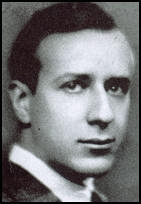| |
| https://spartacus-educational.com/SPmatthewsH.htm |
| 01 Herb Matthews |
|
Herbert Matthews was born in New York City on 10th January, 1900. He had volunteered for service in the First World War but reached the Western Front too late to take part in the fighting. On his return to the United States he studied languages at Columbia University and ended up with a command of Italian, French and Spanish. After graduating in 1922 he joined the New York Times as a secretary to the Business Manager of the newspaper. According to Time Magazine: "After three years in the business office, he switched to the news department. A reluctant journalist, who still has a tendency to be ponderous and pontifical, he spent much of the next ten years longing to get back to his books (Dante, medieval history)." In 1931 Matthews was sent by the newspaper to work at the Paris Bureau. It was from here that he was dispatched to cover the Italian invasion of Ethiopia in 1935. Matthews later wrote: "If you start from the premise that a lot of rascals are having a fight, it is not unnatural to want to see the victory of the rascal you like, and I liked the Italians during that scrimmage more than I did the British or the Abyssinians." He later admitted: "The right or the wrong of it did not interest me greatly." This attitude resulted in him being labeled a "fascist". Paul Preston, the author of We Saw Spain Die: Foreign Correspondents in the Spanish Civil War (2008), has argued: "Matthews returned to Paris, where his early articles on the French response to the Spanish Civil War were not notably sympathetic to the Republic." In March 1937 the New York Times sent Matthews to Spain to cover the Spanish Civil War. Based in Madrid he found the life very exciting: "Of all places to be in the world, Madrid is the most satisfactory. I thought so from the moment I arrived, and whenever I am away from it these days I cannot help longing to return. All of us feel the same way, so it is more than a personal impression. The drama, the thrills, the electrical optimism, the fighting spirit, the patient courage of these mad and wonderful people - these are things worth living for and seeing with one's own eyes." Matthews spent a lot of time with Ernest Hemingway in Spain. Alvah Bessie met them at Ebro: "One was tall, thin, dressed in brown corduroy, wearing horn-shelled glasses. He had a long, ascetic face, firm lips, a gloomy look about him. The other was taller, heavy, red-faced, one of the largest men you will ever see; he wore steel-rimmed glasses and a bushy mustache. These were Herbert Matthews of The New York Times and Ernest Hemingway, and they were just as relieved to see us as we were to see them." |
